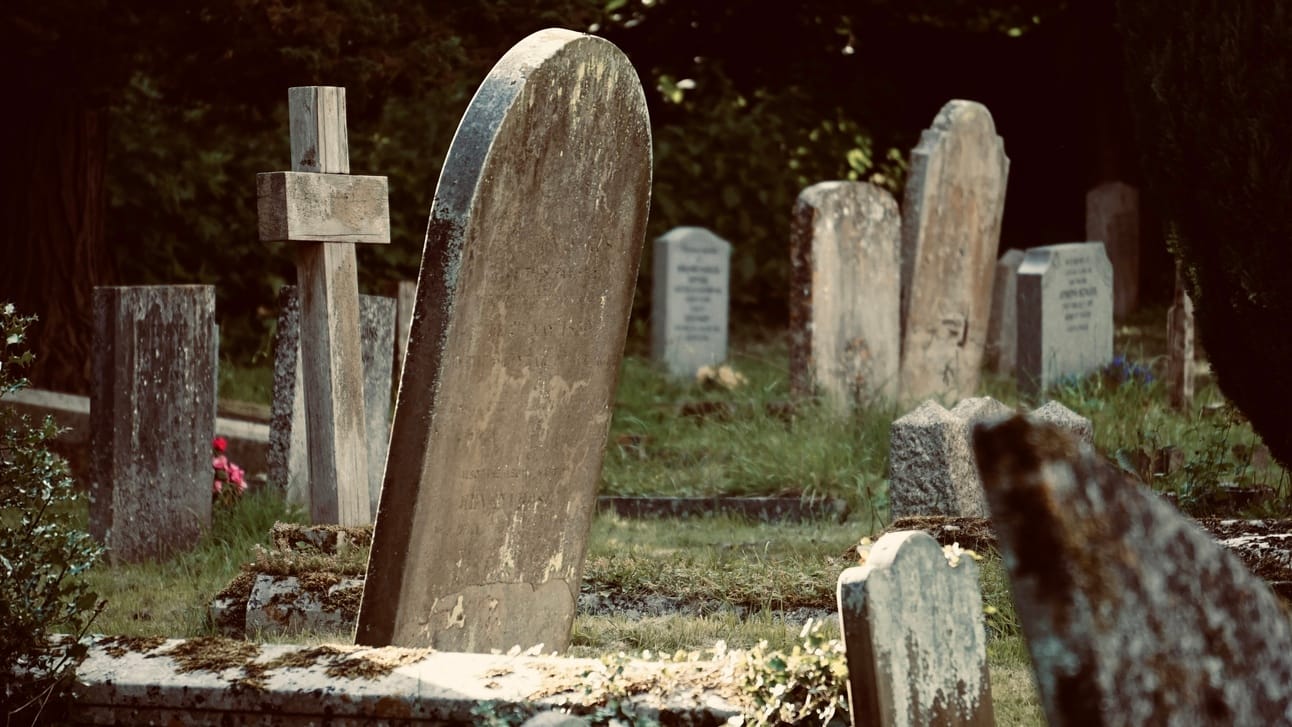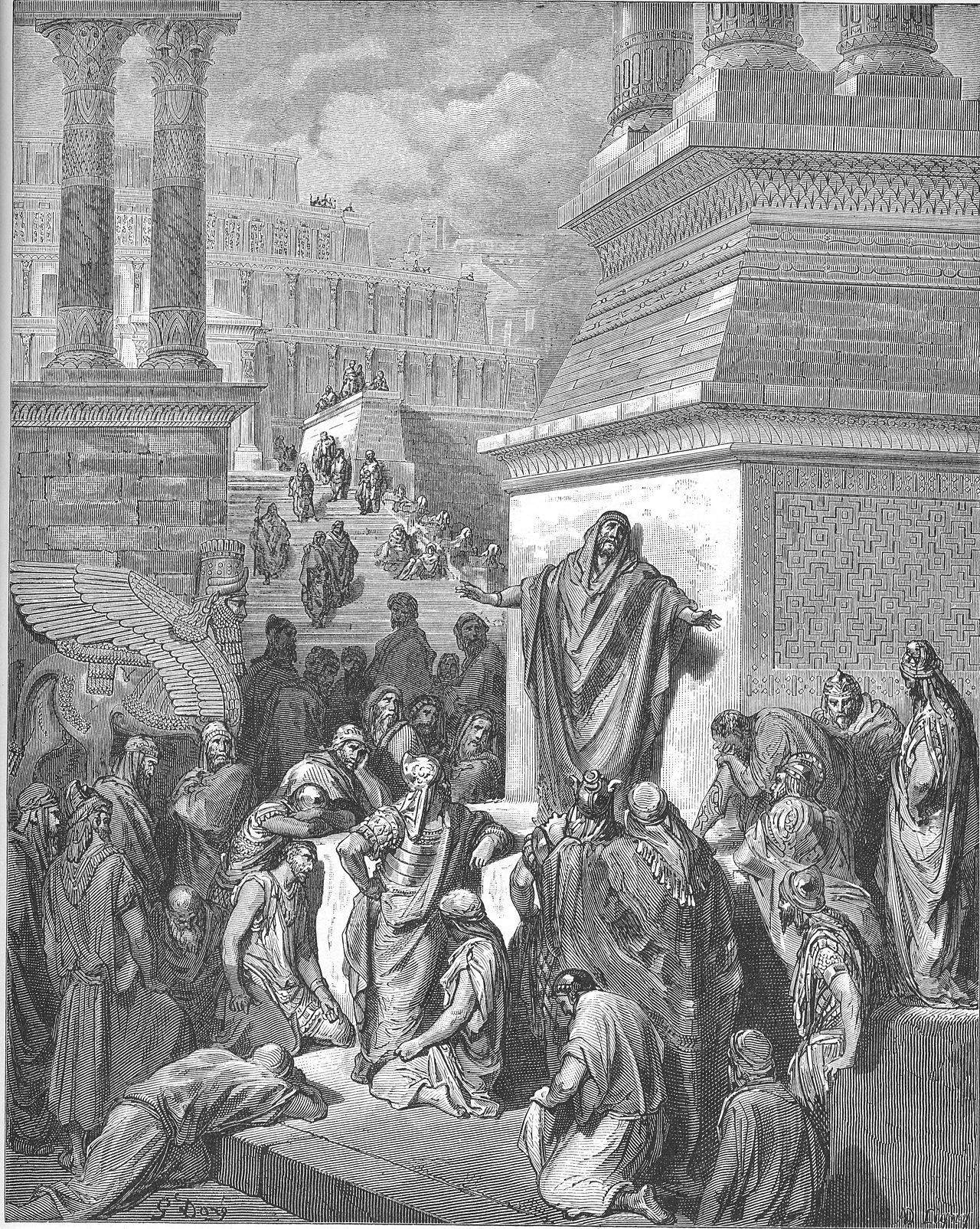
It's Saturday, September 9, 2023.
Today’s edition covers how most U.S. adults claim to have interacted with dead relatives, how abortions have likely increased since the Dobbs decision, and much more. Also in this edition: the fall of the Roman Empire, and the near fall of Nineveh.
First time reading? Sign up here.
Of Christian Concern
MOST AMERICANS HAVE INTERACTED WITH DECEASED LOVED ONES, SURVEY SAYS

(Photo: Mike Bird)
Just over half (53%) of U.S. adults say they have “felt that a family member who is dead has visited them in a dream or any other form,” according to research published by Pew Research Center. The survey, conducted in March and April, found that 46% of Americans say the visitation from a dead relative was in a dream and 31% say it was in some other form.
In the past year, one third (34%) have “felt the presence of a family member who is dead,” over one quarter (28%) have “told dead family members about events in their life,” and 15% “had dead family members communicate with them.”
A total of 44% of Americans say they have experienced one or more of those three events within the past 12 months—including 43% of Protestants, 58% of Catholics, and 38% of the religiously unaffiliated. More moderately religious people (54%) were more likely to have these experiences than either the highly religious (35%) or less religious (30%).
ABORTION NUMBERS ARE THE SAME OR GREATER SINCE DOBBS, NEW RESEARCH ESTIMATES

(Screenshot: Mart Production)
The New York Times reports that “the number of legal abortions [in the U.S.] has held steady, if not increased” after the Supreme Court’s Dobbs decision, which overturned Roe v. Wade last June. An estimated 511,000 legal abortions occurred the first six months of 2023, compared with 465,000 in a six month period of 2020, according to new numbers from the Guttmacher Institute.
Many states where abortion is legal saw an increase. The reason is assumed to be two-fold. First, people from states where abortion is restricted traveled to more permissive states for the procedure. Second, those permissive states have expanded access.
The actual figures are undoubtedly higher, as these estimates only include “abortions provided within the formal health care system.” That excludes the 14 states that have “banned all abortions,” where, in fact, abortions are not fully banned since mothers are still able to order abortion pills without criminal penalty.
Also Noteworthy
→ Over 48,000 patients in the U.S. underwent “gender-affirming surgeries” between 2016 and 2020, according to a new study in the Journal of the American Medical Association. More than 3,600 of those patients were between ages 12 and 18.
→ The Florida Baptist Convention reports that its investigation into a case of financial fraud found no criminal activity from any staff person. The fraud, discovered in May, was a result of cybertargeting, and saw upwards of $700K stolen.
→ New York City now allows mosques to broadcast a Muslim call to prayer on Friday afternoons and throughout Ramadan without a permit, regardless of neighborhood sound restrictions.
→ Mexico’s Supreme Court has decriminalized abortion nationwide, stating on X, formerly Twitter, that the criminalization of abortion is “unconstitutional, since it violates the human rights of women and people with the capacity to gestate.”
→ Hartford Institute for Religious Research reports the good and bad of how churches are doing after the impact of COVID-19. Positive findings include rising attendance, better income, more volunteers, and less conflict. Negative findings include inconsistent congregation sizes, aging demographics, reluctance to change, and lack of engagement among virtual attendees.
→ Elly Emptage, a street evangelist and abortion abolitionist, is fighting for her life against colon and liver cancer, which was discovered shortly after her daughter’s birth in June. A fundraiser for her medical expenses is ongoing.
Content Catch-Up
Recent, notable content by Christian creators.*
→ The One Question to End Abortion: Evangelistic ministry Living Waters released its long-awaited film What Is It?, in which Mark Spence, Ray Comfort, and Emeal “E.Z.” Zwayne “use science, philosophy, and theology to change people’s minds on abortion.” The full film is free to watch on YouTube. (Film)
→ Concerning Angels: The Haunted Cosmos podcast, a show that explores supernatural topics from a Christian perspective, launched its second season with an episode about angels. (Podcast)
→ Is “Pro-Life” No Longer Useful?: Writing for the new Christian resource ministry The Art of Worship, Pastor Jon Speed makes the case that “The Pro-Life Label Has Outlived It’s Usefulness.” (Article)
*Not necessarily an endorsement
The Bible, Briefly
The Example of Nineveh

Jonah Preaches to the Ninevites, Gustave Doré, 1866 (Public Domain)
In the book of Jonah, God commands the prophet to go to the great city of Nineveh and “call out against it the message that I tell you” (Jonah 3:2). When Jonah goes, his prophetic message to the wicked city is simple and clear: “Yet forty days, and Nineveh shall be overthrown!” (3:4)
That’s it. That’s the whole message. There’s no indication of any opportunity for redemption or a second chance. There’s only an indication of a terrifying, impending judgment.
And what was Nineveh’s response? “[T]he people of Nineveh believed God. They called for a fast and put on sackcloth, from the greatest of them to the least of them. The word reached the king of Nineveh, and he arose from his throne, removed his robe, covered himself with sackcloth, and sat in ashes” (3:5-6).
The king even issued a proclamation that everyone in the city should fast and wear sackcloth (including animals), call out mightily to God, and stop their evil and violence (3:7-8). His reasoning: “Who knows? God may turn and relent and turn from his fierce anger, so that we may not perish” (3:9). What a thing to say! The king didn’t know, but he hoped against hope that God would see their sincere repentance and relent from His promise of judgment.
Now see God’s response: “When God saw what they did, how they turned from their evil way, God relented of the disaster that he had said he would do to them, and he did not do it” (3:10). Amazing. The people of Nineveh successfully averted God’s judgment by their sincere, severe acts of repentance from sin.
Indeed, as surprising as God’s actions sometimes are in Scripture, this principle never changes: when there is true repentance from sin, He responds with mercy. That’s Who He is, as Jonah points out: “I knew that you are a gracious God and merciful, slow to anger and abounding in steadfast love, and relenting from disaster” (4:2).
Like Nineveh, the United States has fallen into evil and violence, and has come under God’s judgment. As with Nineveh, so with us: yet a little while, and America shall be overthrown. Will we accept this fate, or will we respond like Nineveh?
This is an edited excerpt from the Anthony Langer blog. Read the full article here.
Church History Tidbit
Christianity and the Fall of the Roman Empire

“Destruction” (1836) by Thomas Cole depicts the fall of the Western Roman Empire (Public Domain)
The reasons for the fall of the Western Roman Empire around AD 476-480 are debated, both at the time and today. But the harbingers of its destruction were the German tribes from the east and north such as the Goths and the Visigoths, and the Mongolian Huns beyond them. The Visigoths crossed the Danube from the north in 376, and over the course of the next 100 years, these “barbarians” whittled down the Empire until its last emperor was deposed in 476.
The Roman pagans of the time, who supposed that their gods had made Rome great, blamed the spread of Christianity for the fall of the Empire, since Christians rejected those pagan deities. That notion was the impetus for St. Augustine’s magnum opus City Of God, in which he responds to the pagans’ fault-finding.
Regardless of the reasons, however, “the barbarians [eventually] conquered every province of the western part of the Empire…,” reports historian B.K. Kuiper. “The Empire fell, but the Church survived.”
This state of things meant the Church again faced a heathen world, as in its infancy. The advantages this time: the Church was large, had a strong organization under bishops, and had a well-established body of doctrines. The disadvantage: the barbarians “were not civilized.” They were illiterate and had little interest in books, many of which they destroyed, ushering in “the Dark Ages.”
Bit by bit, though, the barbarians converted to Christianity. When a king converted, his entire tribe would convert. Within 500 years of the barbarians’ invasion, “by the year 1000, the new nations of Europe had been Christianized.”
Learned something new? Share it.

If you got value out of this briefing, please forward this email or share this link with a friend. If you have comments or suggestions, submit them here.
More Christians should know more. Spread the knowledge.




Your feedback is vital. The success of this project depends on hearing from you, the reader, with your thoughts and ideas about how this digest can best serve you. Please reply to this email to let us know how we’re doing, and what we can do better.
Why "18:15"? The name Project 18:15 is based on Proverbs 18:15: “An intelligent heart acquires knowledge, and the ear of the wise seeks knowledge.” The aim is for this weekly email—a Christian news briefing, a Bible study, and a Church history lesson rolled into one—to be one way you keep abreast of current events and acquire knowledge you might not acquire elsewhere.
Unless otherwise indicated, all Scripture quotations are from The ESV® Bible (The Holy Bible, English Standard Version®), copyright © 2001 by Crossway, a publishing ministry of Good News Publishers. Used by permission. All rights reserved.

Copyright (C) " target="_blank">unsubscribe
